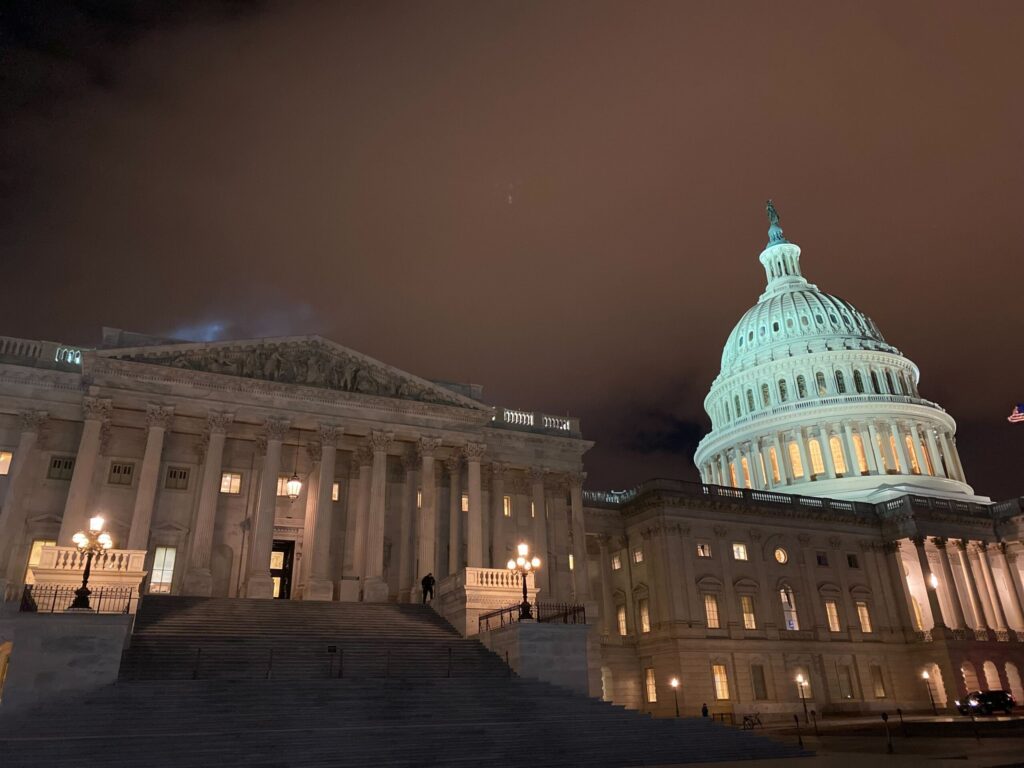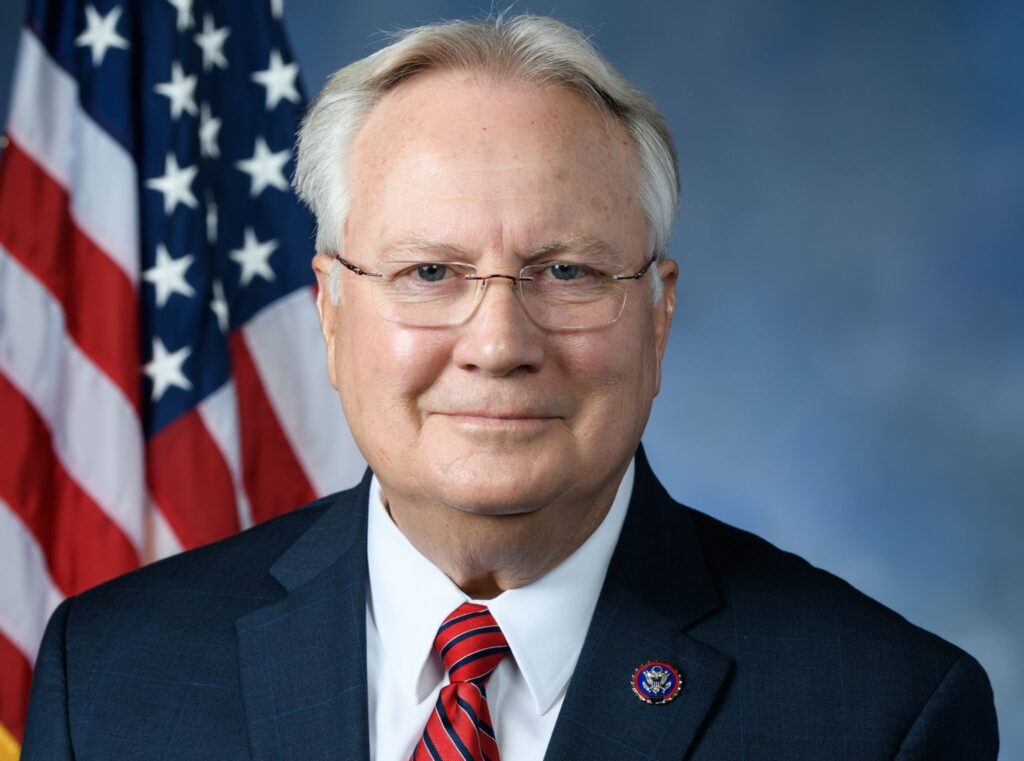Shutdown inches closer as U.S. House GOP fails to pass defense bill, lawmakers exit D.C.

by Jennifer Shutt, Alabama Reflector September 21, 2023 WASHINGTON — U.S. House Republicans were unable for a third time Thursday to begin debate on the Defense funding bill, throwing another wrench into Speaker Kevin McCarthy’s leadership tenure. The 212-216 vote that rejected the rule for the $826 billion Defense spending measure was unexpected, coming less than a day after House GOP lawmakers gathered in a room in the Capitol basement to broker a path forward. Arizona Rep. Eli Crane and Georgia Rep. Marjorie Taylor Greene switched their votes to oppose the rule, after voting on Tuesday to adopt it. Colorado Rep. Ken Buck and South Carolina Rep. Ralph Norman both supported adoption of the rule on Thursday after opposing it earlier in the week. Other Republicans voting no included Andy Biggs of Arizona, Dan Bishop of North Carolina, and Matt Rosendale of Montana. The rule would have allowed the House to begin officially debating the bill and voting on nearly 200 amendments. The failed vote led McCarthy to reverse course on the schedule, with many lawmakers heading home for the weekend on Thursday instead of sticking around for votes throughout the weekend. McCarthy had said exactly one week ago, “When we come back, we’re not going to leave. We’re going to get this done.” The update to the House schedule sent around Thursday afternoon said ”ample notice will be given ahead of any potential votes tomorrow or this weekend.” The stalemate and change of plans does not bode well for efforts to approve the short-term spending bill that’s needed to stave off a partial government shutdown when the new fiscal year begins Oct. 1. McCarthy has yet to unify his members amid deep disagreements about how much the federal government should spend and what policy restrictions should be included in full-year bills as well as the stopgap measure. The ongoing dispute has ground the House chamber to a halt as McCarthy searches for a way to unify his razor-thin majority without turning to Democrats to pass a bipartisan bill. Arkansas Republican Rep. Steve Womack, a senior appropriator, said Thursday that his fellow lawmakers need to accept the Senate will re-work any partisan bills the House sends over. “Remember, this is all going to go to the Senate, so people don’t need to get real hot and bothered over where we are today,” Womack said. “It’s going to be based on what comes back and whether or not it can get to the floor.” Discussions among House Republicans, he said, are likely to become “heated” once the Senate re-works a short-term spending bill and sends it back to the House for a final approval vote. Infighting and political differences within the House Republican Conference have so far prevented GOP lawmakers from reaching agreement on their opening offer on a short-term spending bill, which is also called a continuing resolution or CR. Defense spending bill falters Before the Thursday vote, McCarthy had been somewhat optimistic the House could finally approve the rule and begin debate on the full-year Defense spending measure. Greene wrote on X that she switched her vote “because they refused to take the war money for Ukraine out and put it in a separate bill.” The rule approved 184 amendments for floor debate and votes, including one from Florida’s Matt Gaetz that would have prohibited “security assistance for Ukraine.” Crane wrote on X on Thursday that he believes votes “on CRs, omnibus bills and raising the debt ceiling should never take place.” “I’m going to do whatever I can to change the way this place works,” he wrote. Oklahoma Republican Rep. Tom Cole, chair of the Rules Committee, switched his vote on Thursday to a no vote after voting yes a few minutes earlier. The procedural maneuver allows him to bring the rule back up for a vote at a later time. The whip count error appeared to be a surprise for Defense Appropriations Chair Ken Calvert, a California Republican; ranking member Betty McCollum, a Minnesota Democrat; and staff — all of whom were seated at the tables on the House floor ready to lead debate on the measure. The Republican table held thick white binders as well as a large accordion folder, all filled with paperwork, and the Democratic table was stacked with paperwork as well. It’s highly unlikely that staff would have brought all the materials needed to debate the bill and amendments if they knew the rule vote was going to fail. ‘At least a short-term shutdown’ In addition to strong disagreement among House Republicans about the full-year spending bills, the House GOP Conference has yet to solidify a plan to pass the short-term stopgap spending bill that’s needed to hold off a funding lapse. Idaho Republican Rep. Mike Simpson, chair of the Interior-Environment spending subcommittee, said he expects there will be “at least a short-term shutdown” as the House and Senate try to reach agreement on a short-term spending bill. “That’s a lot of work to do in a very short time,” Simpson said. House Freedom Caucus Chair Scott Perry, a Pennsylvania Republican, said Thursday that he hasn’t seen details on any new short-term spending bills that might come to the floor. “I haven’t seen the language of any additional CR,” he said. Kansas Sen. Jerry Moran, the top Republican on the Commerce-Justice-Science spending panel, said he’s “hoping the House chaos is set aside.” “I keep saying I’m not voting for another CR again, but I keep voting for them because the outcome is worse with a shutdown,” Moran said. “But this just needs to be resolved in the House. I don’t think there’s a problem in the Senate that would cause a shutdown.” Any short-term spending bill will have to be bipartisan in order to get through the Democratically controlled Senate, where at least 60 votes are needed to limit debate on legislation. That could take more time than lawmakers have before Oct. 1, he said. “Nothing about this is conducive to getting
Jerry Carl supports bill to allow flexibility in spending COVID-19 funds

Congressman Jerry Carl announced he has co-sponsored a bipartisan bill to give state and local officials flexibility and time to spend the remainder of COVID-19 relief dollars. The State, Local, Tribal, and Territorial Fiscal Recovery, Infrastructure, and Disaster Relief Flexibility Act, introduced by Reps. Dusty Johnson and Carolyn Bourdeaux, aims to make various infrastructure investments eligible for payment with these funds. The legislation recently passed the U.S. Senate unanimously. Under the CARES Act, Congress did provide some flexibility for how COVID-19 funds could be spent, but the funds were not able to be used for infrastructure projects. This bill will give state and local officials additional flexibility and time to spend the remaining COVID-19 relief dollars responsibly. Carl supports the effort to add infrastructure spending as part of the COVID funding. Carl said in a statement, “South Alabama has a desperate need for investments in true infrastructure such as roads, bridges, ports, waterways, and broadband. As a former county commissioner, investing in our nation’s infrastructure is a top priority for me, so I’m proud to cosponsor this bipartisan bill to give states like Alabama the flexibility they need to spend unused COVID-19 relief dollars on critical investments in our nation’s infrastructure. “Unfortunately, Nancy Pelosi is holding the American people hostage by blocking this bill from being considered on the House floor. Despite passing the U.S. Senate unanimously and being introduced in the House by a large, bipartisan group, Nancy Pelosi is focused on raising our taxes, bankrupting America, and playing political games. It’s time to put the American people first and pass this bipartisan, commonsense bill.” South Dakota congressman Dusty Johnson posted on Twitter, “We need to cut the federal red tape. State governments need flexibility to administer remaining COVID-19 relief funds for critical infrastructure. Our bill would make that a reality & it’s already passed the Senate. Congress can get it done.” This legislation is cosponsored by Reps. Steve Scalise, Henry Cuellar, Rick Allen, Suzan DelBene, David Rouzer, Marilyn Strickland, Randy K. Weber, Jared Huffman, Steven Palazzo, Sanford D. Bishop, Jr., Andy Barr, Joseph Morelle, Dan Meuser, Albio Sires, Carlos A. Gimenez, Antonio Delgado, David B. McKinley, Kim Schrier, Peter Meijer, Darren Soto, Chris Pappas, Rick Crawford, Betty McCollum, William Timmons, Josh Gottheimer, Brad Wenstrup, Derek Kilmer, Don Young, and Tom O’Halleran.

